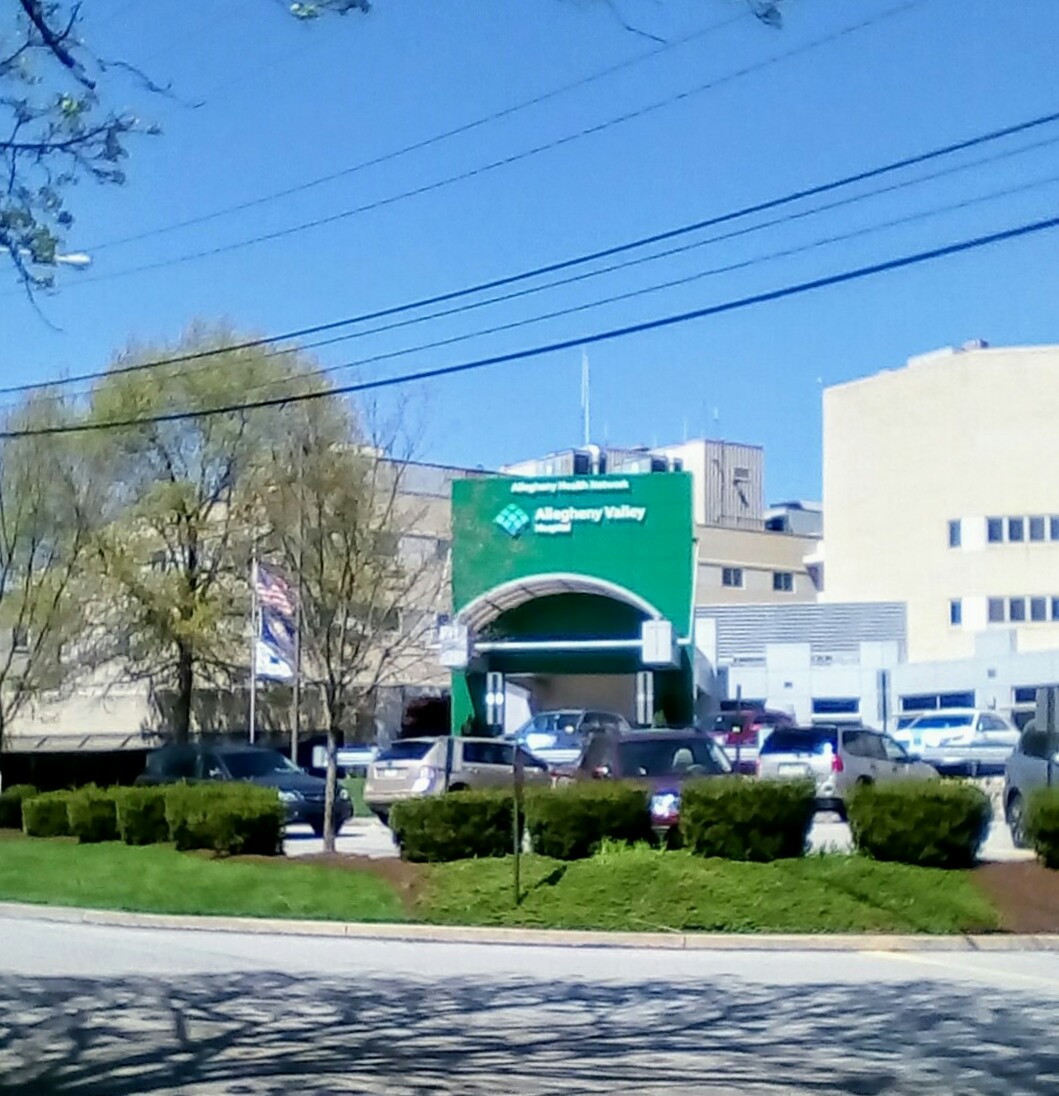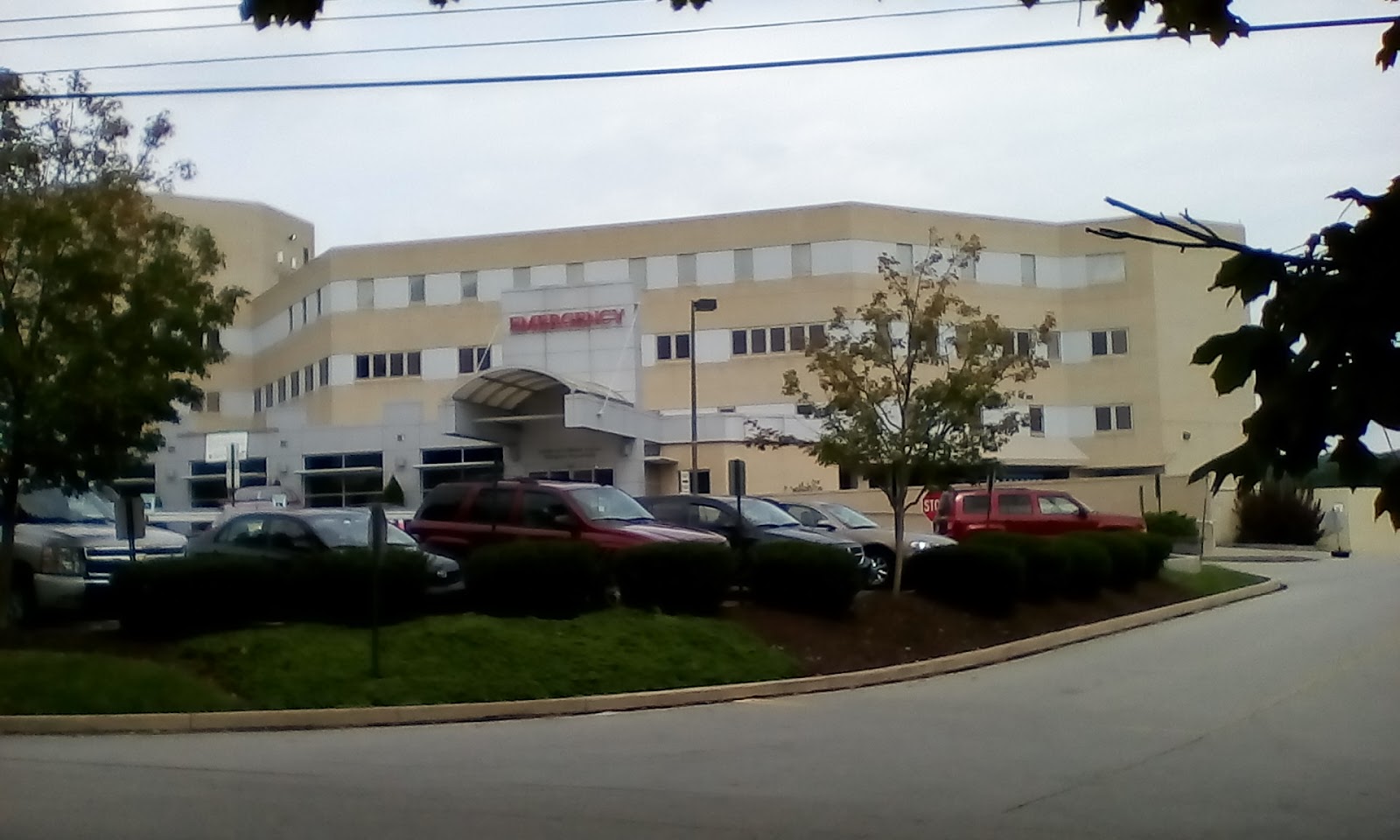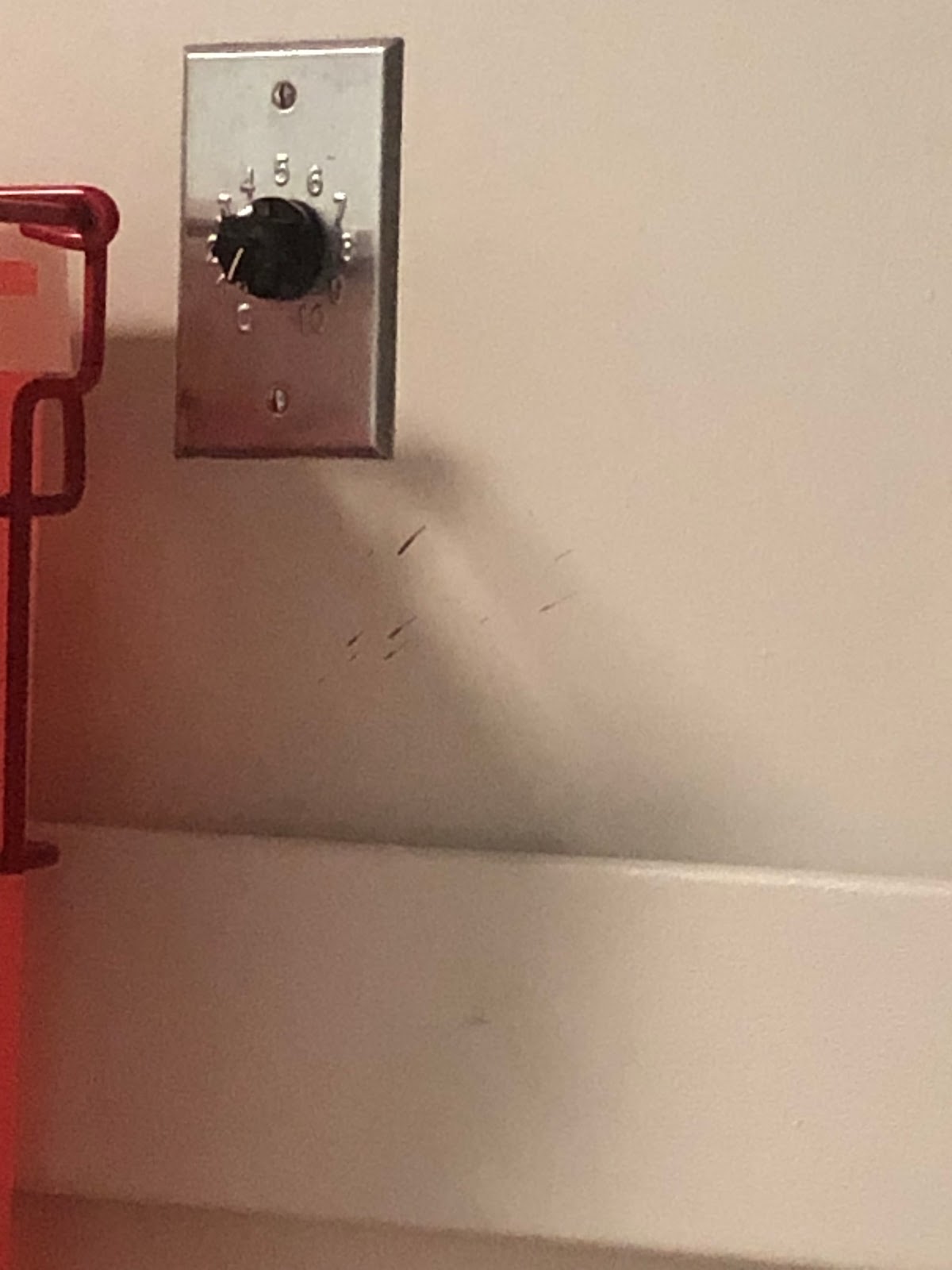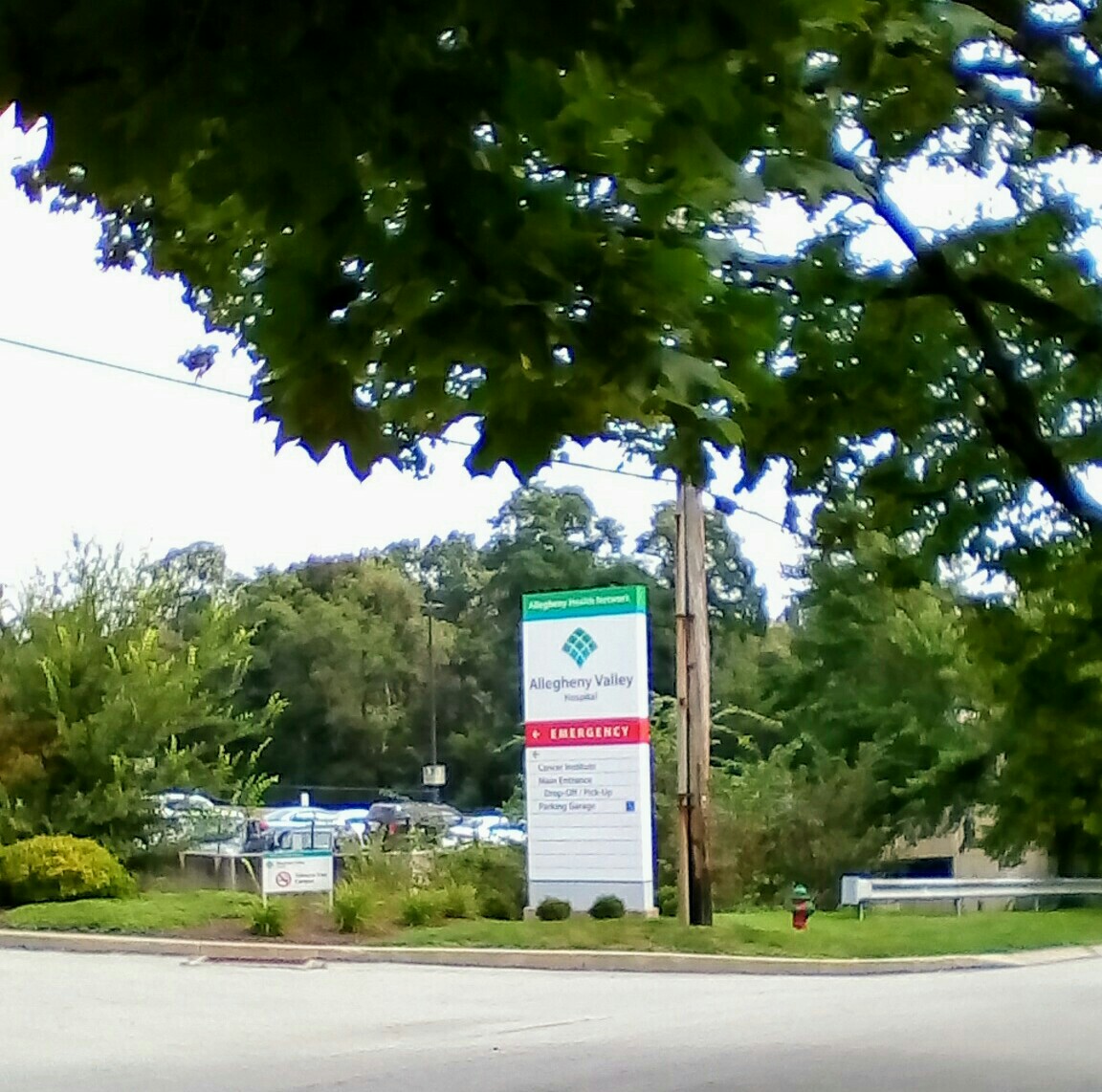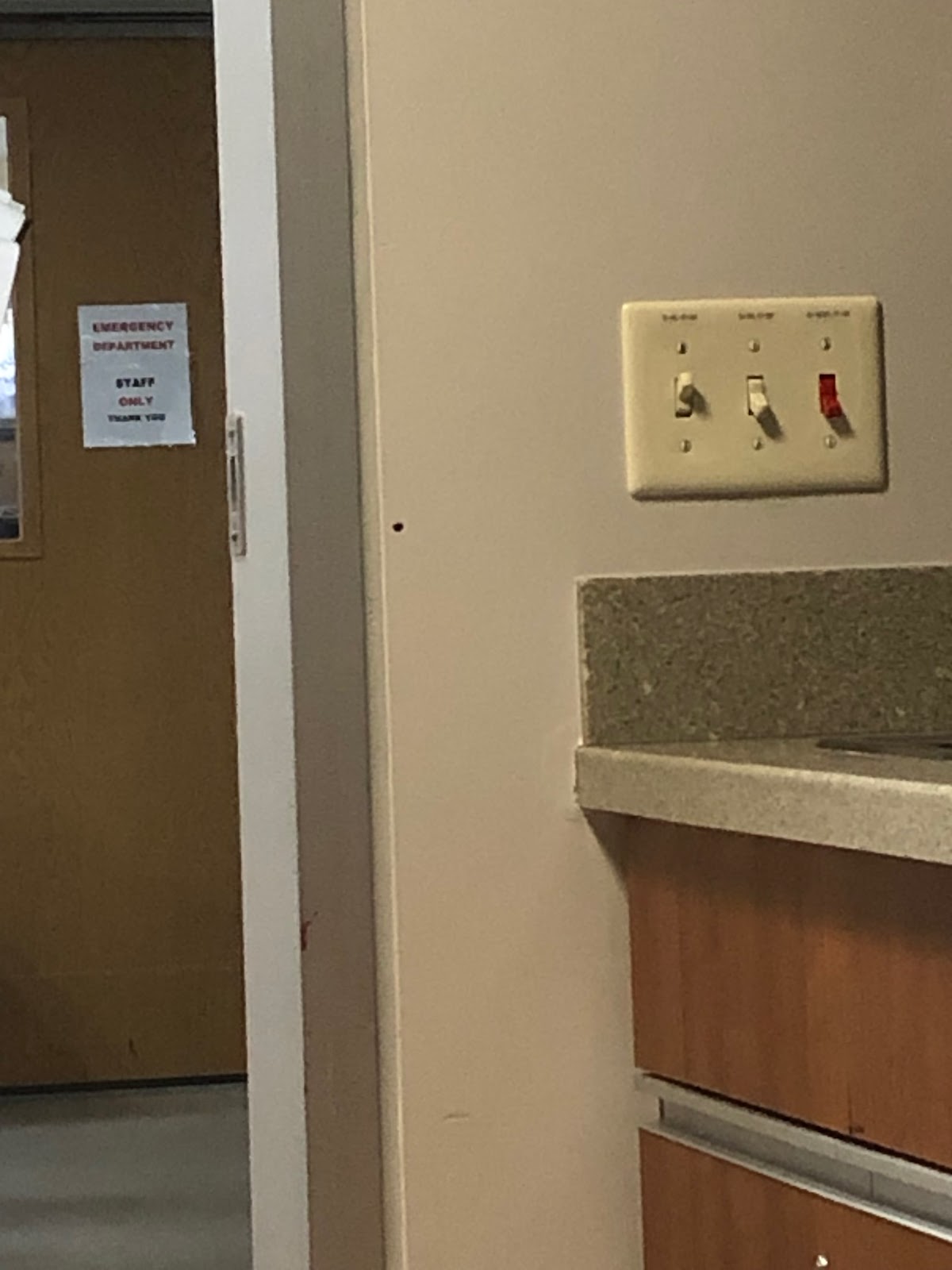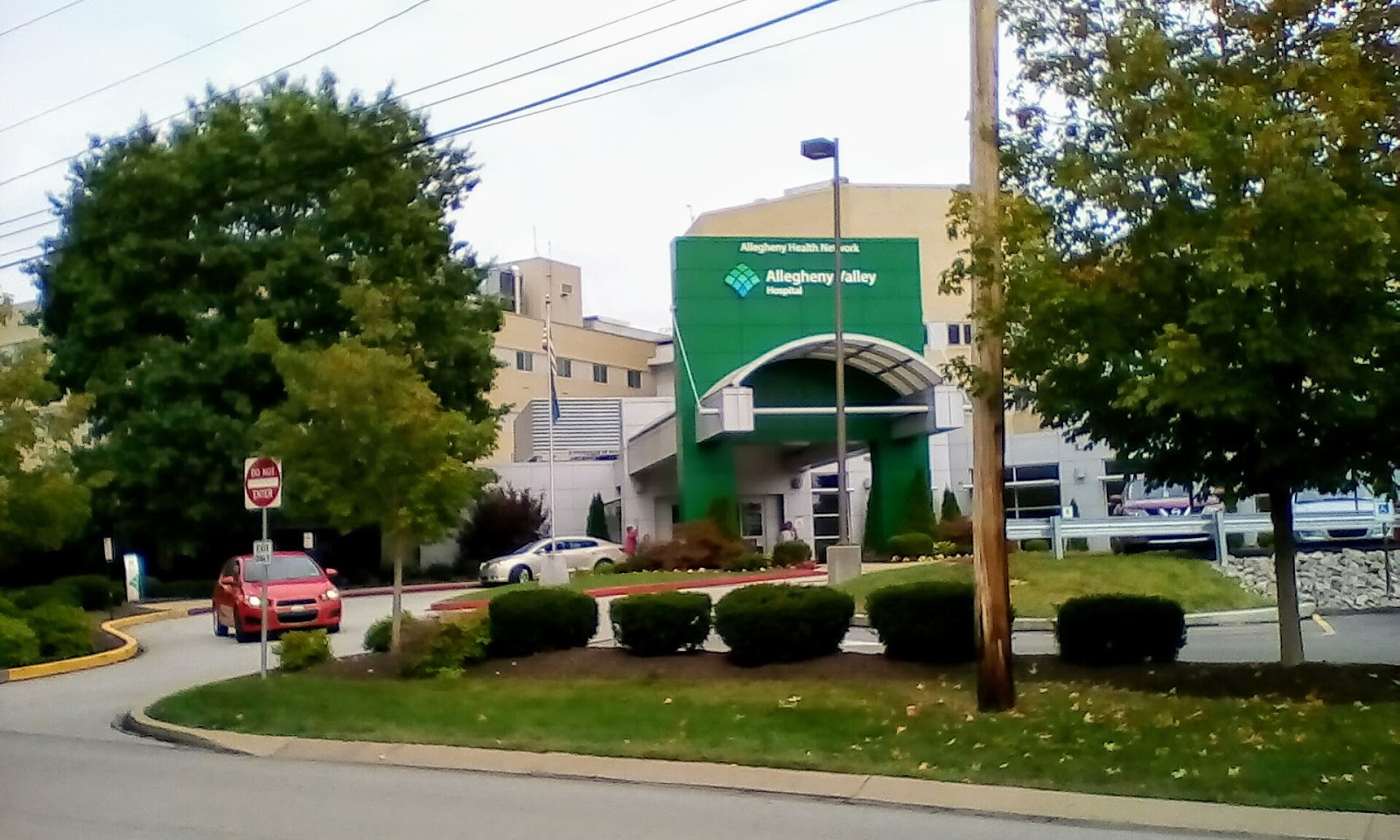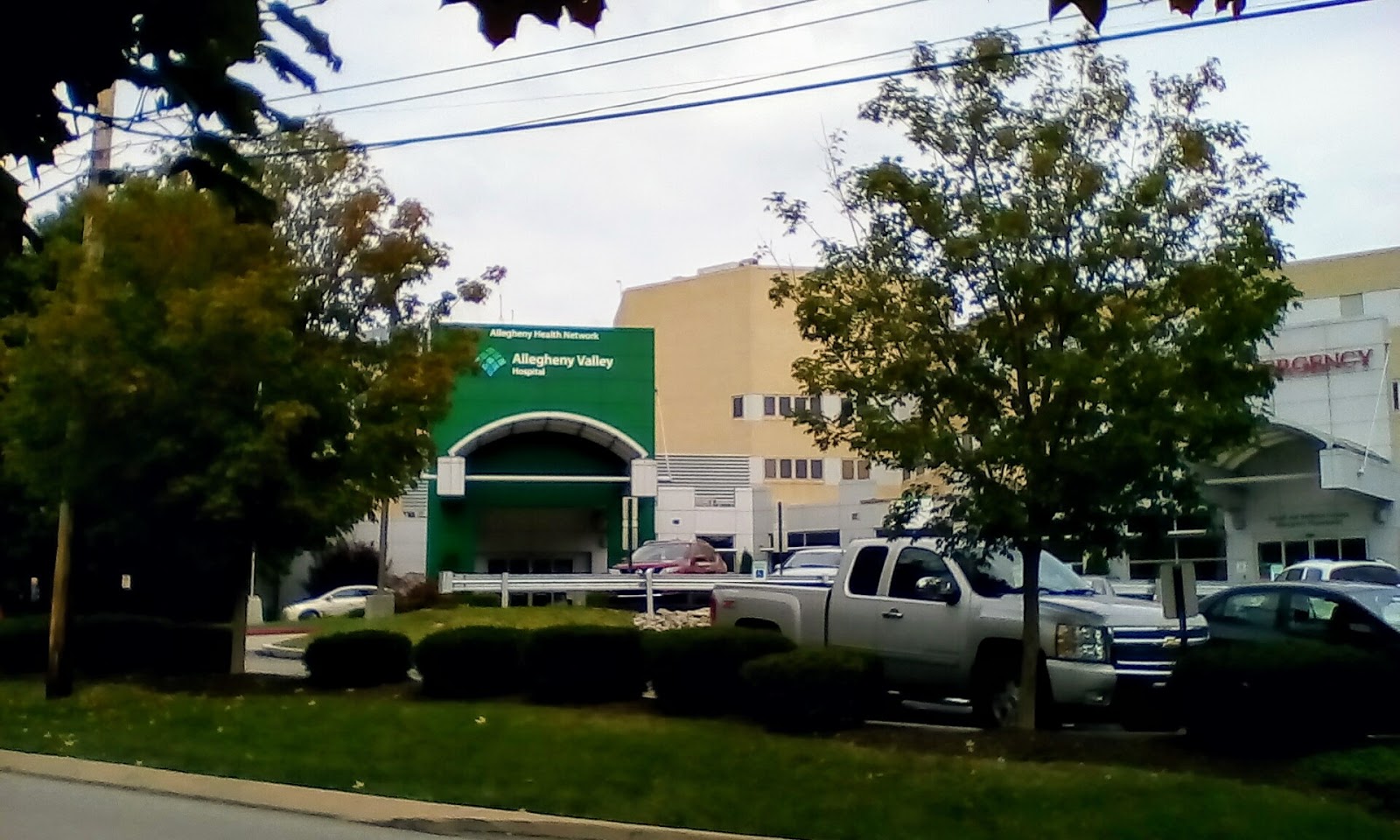Allegheny Valley Hospital - Inpatient Mental Health
Overview
Allegheny Valley Hospital - Inpatient Mental Health is a mental health treatment center for people seeking treatment near Allegheny County. As part of their treatment modalities for recovery, Allegheny Valley Hospital - Inpatient Mental Health provides individual psychotherapy, nicotine replacement, and group counseling during treatment. Allegheny Valley Hospital - Inpatient Mental Health is located in Natrona Heights, Pennsylvania, accepting medicaid for treatment.
Allegheny Valley Hospital - Inpatient Mental Health at a Glance
Payment Options
- Medicaid
- Private health insurance
- Cash or self-payment
- Medicare
- Aetna
Assessments
- Comprehensive mental health assessment
- Comprehensive substance use assessment
Age Groups
- Adults
- Young adults
Operation
- Private for-profit organization
Accreditations
The Joint Commission:

The Joint Commission's addiction and behavioral health accreditation signifies a facility's commitment to high-quality care. It involves rigorous evaluations and assessments of clinical practices, ensuring effective, evidence-based treatment. Accreditation showcases a dedication to continuous improvement and patient safety, instilling trust among patients, families, and healthcare professionals. It's a mark of excellence in addiction and behavioral health care.
Effective date: 07/11/2015
Registration: 6158
SAMHSA certification for opioid treatment program (OTP):
Accreditation by the Substance Abuse and Mental Health Services Administration (SAMHSA) for Opioid Treatment Programs (OTPs) signifies that a program has met strict standards for providing high-quality care to individuals with opioid use disorders. It assures patients, families, and communities that the OTP follows evidence-based practices, employs qualified staff and maintains a safe and effective treatment environment. This accreditation reflects the program's commitment to addressing the opioid epidemic and promoting recovery.
Treatment At Allegheny Valley Hospital - Inpatient Mental Health

Conditions Treated
Mental health treatment:
Mental health services are essential during treatment for drug and alcohol addiction, whether you receive treatment in an inpatient or outpatient setting. While receiving inpatient care, you can expect to have round-the-clock access to mental health therapists and medical staff. Additionally, you will likely receive a number of different therapies and mental health options like individual and group counseling, addiction and relapse prevention education, and coping skills training.
Substance use treatment:
Substance use rehabilitation embodies a holistic treatment approach crafted to assist individuals contending with drug or alcohol addiction. This all-encompassing rehabilitation strategy encompasses two crucial components: initially addressing the physical dependency, frequently commencing with detoxification, and subsequently confronting the psychological triggers through a diverse array of therapeutic methods. The overarching objective is to empower individuals to achieve and maintain sobriety while equipping them with essential skills and coping mechanisms for a successful reintegration into society and a life free from substance abuse.
Co-occurring Disorders:
Dual-diagnosis rehabs are usually the appropriate solution to treat co-occurring mental health and substance abuse disorders. These facilities typically employ medical and behavioral experts who use a range of interventions, together with the right healing environment, for you to achieve and sustain long-term recovery. Treatment usually includes evidence-based therapies (like cognitive behavioral therapy), recovery support meetings, 12-step facilitation, psychoeducation, skills training, and group therapy.

Levels Of Care
Hospital inpatient treatment:
Inpatient treatment includes an all-encompassing residential therapeutic regimen, during which patients reside on-site for a period usually spanning 30 to 90 days. Within this immersive setting, individuals receive structured assistance, prioritizing their safety and fostering a dedication to recovery. The treatment modalities offered may include individual and group counseling, cognitive-behavioral therapy, holistic interventions, family therapy sessions, as well as experiential therapies. The overarching objective is to comprehensively address the physical, emotional, and psychological dimensions of addiction or mental health disorders, establishing a resilient groundwork for long-term healing.

Treatment Modalities
Individual psychotherapy:
Individual Psychotherapy provides a private, one-on-one setting where clients can explore and address their personal challenges, behaviors, and feelings related to addiction and recovery. With the guidance of a trained therapist, clients work to uncover the root causes of their substance use, develop coping strategies, and build a foundation for long-term recovery and personal growth.
Nicotine replacement:
Nicotine Replacement Therapy (NRT) is a medically-approved approach to help individuals quit smoking. It involves providing the body with controlled, lower doses of nicotine, typically through patches, gums, lozenges, inhalers, or sprays, to alleviate withdrawal symptoms and cravings. By gradually reducing nicotine intake, NRT aims to wean users off their dependence, making it easier to quit smoking and improving overall health outcomes.
Group counseling:
Group Counseling is a therapeutic approach where individuals come together under the guidance of a trained counselor to share experiences, provide mutual support, and gain insights. It fosters a sense of community, promotes understanding through diverse perspectives, and offers personal growth and problem-solving strategies.
Experiential Therapy:
Experiential therapy is a form of therapy in which clients are encouraged to surface and work through subconscious issues by engaging in real-time experiences. Experiential therapy departs from traditional talk therapy by involving the body, and having clients engage in activities, movements, and physical and emotional expression. This can involve role-play or using props (which can include other people). Experiential therapy can help people process trauma, memories, and emotion quickly, deeply, and in a lasting fashion, leading to substantial and impactful healing.
Nutrition Therapy:
Nutrition Therapy offers a holistic approach to recovery by addressing the body's dietary needs. Tailored to each individual, this therapy ensures optimal nutrient intake to support healing, boost immunity, and promote overall well-being, complementing other rehabilitation efforts for a comprehensive recovery journey.
Family counseling:
Studies consistently show that the likelihood of sustainable recovery increases when family members are involved in rehab and substance abuse treatment. Genetic elements might influence susceptibility to drug and alcohol dependence and mental health challenges. Family interactions frequently contribute to addiction triggers. However, with the right education, family members can become pivotal support pillars during rehabilitation.
Marital/couples counseling:
Whether a marriage or other committed relationship, an intimate partnership is one of the most important aspects of a person's life. Drug and alcohol addiction affects both members of a couple in deep and meaningful ways, as does rehab and recovery. Couples therapy and other couples-focused treatment programs are significant parts of exploring triggers of addiction, as well as learning how to build healthy patterns to support ongoing sobriety.
Recreational Therapy:
Recreational therapy, within the realm of behavioral health, involves using various recreational activities and interventions to support, maintain, or improve individuals' psychological, emotional, and social well-being. Using art, music, sports, games, and nature excursions, recreational therapists reduce stress, enhance mood, promote interpersonal skills, and improve overall mental health. Tailored to the individual's needs and interests, this therapeutic approach provides an engaging means to foster resilience, self-expression, and personal growth.
Fitness Therapy:
Fitness Therapy blends exercise with psychotherapy for a fun, inspiring, and effective way of treating addiction and other issues. By incorporating movement into counseling sessions, clients become more empowered, motivated, and goal-oriented, all while strengthening their bodies and becoming more flexible. Fitness Therapy is usually used to complement a course of treatment (inpatient or outpatient) to make it even more successful. Increasing the connection between a patient’s mind and body helps both with healing as well as in creating new, healthy habits.
Ancillary Services
Languages
- Sign language services for the deaf and hard of hearing
Special Programs
- Persons 18 and older with serious mental illness (SMI)

Additional Locations
Contact Information
DISCLAIMER: The facility name, logo and brand are the property and registered trademarks of Allegheny Valley Hospital - Inpatient Mental Health, and are being used for identification and informational purposes only. Use of these names, logos and brands shall not imply endorsement. BetterAddictionCare.com is not affiliated with or sponsored by Allegheny Valley Hospital - Inpatient Mental Health.
